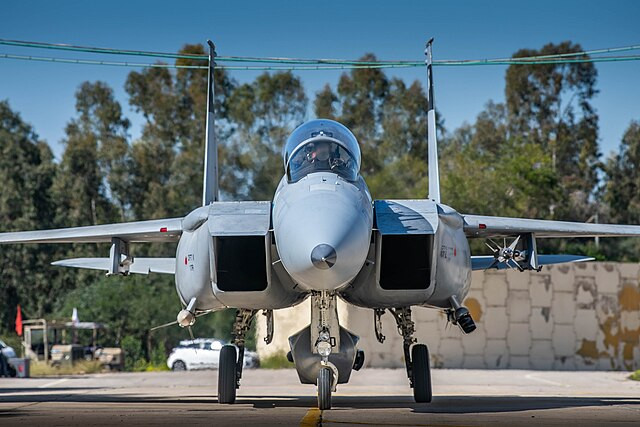The Israeli Air Force launched a series of airstrikes against Houthi-controlled targets in Yemen on Friday, escalating tensions in the Middle East as the Iran-backed rebel group continues its drone and missile campaign against Israel. The strikes targeted critical infrastructure, including the ports of Hodeidah and Ras Isa and a power station near Yemen's capital, Sanaa.
Israeli Prime Minister Benjamin Netanyahu declared that the Houthis, also known as Ansar Allah, would "continue to pay a heavy price" for their attacks. "They pose a danger to Israel and the entire region, including harming global freedom of navigation," Netanyahu said. "We will act with determination and force against any entity that threatens Israel - wherever and whenever necessary."
The strikes came in response to the Houthis' recent operations, including an attempted drone attack on Israel on Thursday. The Israel Defense Forces (IDF) claimed to have intercepted the drones over the Mediterranean Sea, with no reported casualties or damage. However, the IDF stated that over 350 drones and ballistic missiles have been launched at Israel by the Houthis since the conflict with Hamas began in October.
"The Houthi terrorist regime is a central part of the Iranian axis of terror," the IDF said in a statement. "Their attacks on international shipping vessels and routes continue to destabilize the region and the wider world."
Houthi military spokesperson Yahya Saree claimed responsibility for recent attacks, including targeting U.S. and Israeli assets. In a televised speech, Saree said, "The Yemeni Armed Forces carried out several military operations during the past 48 hours," adding that they struck Israeli targets and forced U.S. warships to retreat from the northern Red Sea.
The Houthis' involvement in the broader Middle East conflict highlights their strategic role within the Iran-led Axis of Resistance, which includes groups such as Hezbollah in Lebanon and militias in Syria and Iraq. The group has ramped up its maritime and aerial operations, targeting commercial vessels in the Red Sea and Gulf of Aden and prompting significant global trade disruptions.
While Israel has acknowledged its strikes in Yemen, reports of U.S. and U.K. involvement remain unconfirmed. A U.S. defense official told Newsweek, "We are aware of the reports of strikes in Yemen... [but] the U.S. did not participate in any recent strikes today." Similarly, the U.K. Ministry of Defense denied involvement.
However, U.S. forces have been active in targeting Houthi assets. Earlier this week, U.S. Central Command announced precision strikes on Houthi underground weapon storage facilities, aiming to curb their capabilities to attack American warships and merchant vessels in the region.
White House National Security Council spokesperson John Kirby reinforced the U.S. commitment to countering Houthi aggression, stating, "We're going to degrade Houthi capabilities as best we can." Kirby added that recent strikes demonstrated the group's persistent ability to launch long-range attacks, despite the toll taken by coalition efforts.
The Houthis' aggressive stance, coupled with their alignment with Iran, has complicated efforts to stabilize the region. While Netanyahu vowed no immunity for Houthi leaders, Defense Minister Israel Katz warned that Israel would "pursue and hunt" those responsible for attacks. "The port of Hodeidah is paralyzed, and the port of Ras Isa is on fire. The message is clear: Whoever harms Israel will be struck much more," Katz said.
The escalating hostilities come as the region anticipates leadership changes in the United States. President-elect Donald Trump has warned that "all hell will break out in the Middle East" if a resolution to the Gaza conflict, including the release of hostages held by Hamas, is not achieved before his inauguration.
As tensions persist, the Houthis have vowed to continue their operations, maintaining a defiant stance against Israel and its allies. "Our hand is longer than the hand of Israel," a Houthi source told Newsweek. "We will continue our operations without stopping until the aggression on Gaza stops."




